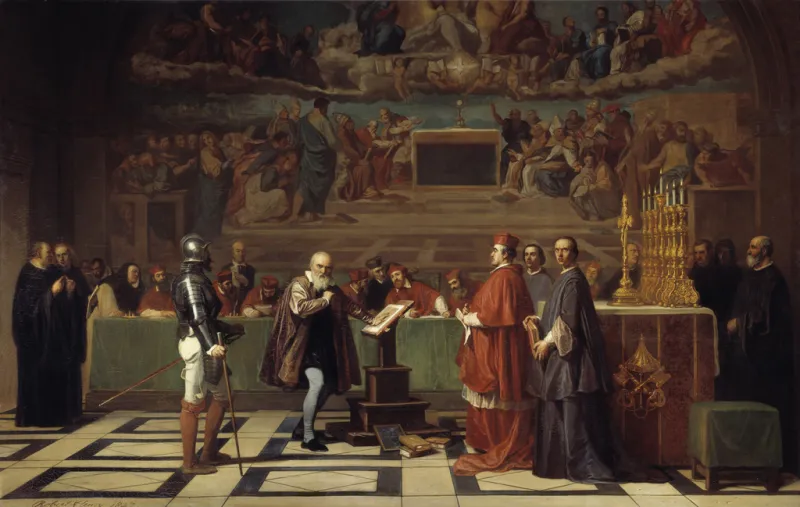
Washington, D.C. Newsroom, Jun 4, 2022 / 11:00 am (CNA).
Chris Ganey, an astronomer and historian of science at the Vatican Observatory, was recently given the 2021 Nelson H. Minnich Prize for his work investigating the nuances of the Galileo affair.
The Minnich Prize is given for the best article published in the Catholic Historical Review, a quarterly journal of the Catholic University of America Press.
Ganey, public relations officer at the Vatican Observatory Foundation, was given the award for his article “Galileo between Jesuits: The Fault is in the Stars.”
EWTN News Nightly recently spoke with Graney about the recognition.
“My research,” he explained, “is regarding Galileo Galilei … and some of his Jesuit astronomer critics.”
“My area of interest is Galileo and his opponents—the people who he was arguing with, what did they have to say? It turns out that what they have to say is a lot more interesting than than what we might think. It’s a very complex and and dynamic argument.”
“It tells us something about how science works,” Ganey told EWTN News Nightly. “We see just how complicated it can be to answer even relatively simple scientific questions.”
The committee which awarded Ganey the Minnich prize wrote that “Graney brilliantly demonstrates that the Copernican view of the nature and size of the stars, which was abandoned not long after Galileo’s death, led many scholars to reject heliocentrism. Thus, the church opposed Galileo not just on theological but on scientific grounds. Graney is to be commended for showing that there is more nuance to one of the most famous confrontations in the history of the church than scholars have hitherto supposed.”
Ganey also discussed other work going on at the Vatican Observatory during his appearance on EWTN News Nightly.
He mentioned a new model proposed by Fathers Gabriele Gionti S.J and Matteo Galaverni, an astronomer and associate astronomer, respectively, of the Vatican Observatory, which seeks to describe, using mathematics, how gravity would have functioned in the midst of what is known as “cosmological inflation,” i.e. the rapid expansion of the universe during and after the Big Bang.
“They discovered some problems with existing ideas about gravity at the very beginning of time when the universe was very compact,” Graney said, adding that they “have worked through the problems and proposed a new alternative.”
With roots dating to 1582, the Vatican Observatory is one of the oldest active astronomical observatories in the world. Its headquarters are in Castel Gandolfo, a town just outside Rome and the location of the summer residence of the popes. The Vatican Observatory also operates the Vatican Advanced Technology Telescope, located in rural Arizona about 200 miles southeast of Phoenix.
If you value the news and views Catholic World Report provides, please consider donating to support our efforts. Your contribution will help us continue to make CWR available to all readers worldwide for free, without a subscription. Thank you for your generosity!
Click here for more information on donating to CWR. Click here to sign up for our newsletter.




We read: “there is more nuance to one of the most famous confrontations in the history of the church…”
In addition, there’s the “nuance” as to what Galileo actually promised regarding publication of his work—and discrepancies in the Inquisition’s record of his first trial in 1616 compared to the damaging second trial of 1632. The soft restrictions of the first “injunction” do not match the tighter restrictions on the written record for the later court.
How the deception was actually achieved is subject to more than one theory but, based on handwriting analysis and X-ray technology (etc.), that there was complex intrigue and a deception admits to very little doubt. See Giorgio de Santillana, “The Crime of Galileo,” Chapter XIII (“The Problem of the False Injunction”), University of Chicago Press, 1955.
Quoted in the last lines of the book, the Jesuit astronomer of the day, Fr. Grienberger, is reported to have remarked: “If Galileo had only known how to retain the favor of the Jesuits, he would have stood in renown before the world, he would have been spared all his misfortunes, and he could have written what he pleased about everything, even about the motion of the earth” (p. 290, citing Galileo’s letter to his Paris correspondent and the Protestant statesman, Elia Diodati, July 25, 1634). Interesting…